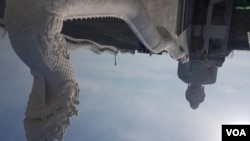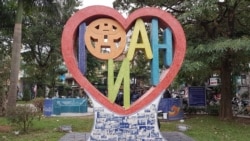On a recent afternoon in Ho Chi Minh City, the airport was teeming with strangers who crowded one another in line, filed health forms, and got on planes, three to a row. Almost all were Vietnamese citizens, and if judging by the paucity of empty seats on the planes, the nation seems to be succeeding in its campaign to promote domestic tourists in place of the foreign ones unable to come because of COVID-19.
All over Southeast Asia, governments and companies are focusing on domestic tourism in the wake of the collapse in international travel. Hotels in Vietnam offer rooms at half price. In Thailand citizens head on road trips, with so many hitting the beaches that some had to be closed again to enforce social distancing. In Malaysia there is a contest to make a video to promote domestic travel.
Next on the horizon could be a “travel bubble” to allow people to move across Southeast Asian borders in places that have sufficiently contained the coronavirus. While travel has plummeted all over the world, tourism in the Association of Southeast Asian Nations (ASEAN) was hit early because of its proximity to China, where the virus broke out, and its reliance on Chinese tourists for revenue.
"Travel bubble’ is now the new buzzword in Asia, as most countries appear to have COVID-19 under control,” said HSBC, a retail and investment bank, in a report on Friday.
It said the nations likely to use the bubble are those that flattened the curve of virus infections while starting to reopen their economies.
“Although the implementation of these ‘travel bubbles’ remains in the early stages, four countries in ASEAN are potential candidates, namely Vietnam, Thailand, Singapore, and Malaysia,” the bank said.
While Vietnamese wait for the ability to go overseas, they are seeing ads in a national campaign dubbed “Vietnamese People Travel in Vietnam.” Commercials range from TV hosts welcoming viewers on board a cable car in central Da Nang city, to drone footage sweeping over northwestern mountains shaded in wispy clouds.
The government gave relief funding to sectors including tourism, and it’s considering whether to extend a national holiday, in September, so Vietnamese have more time to travel.
Besides discounts, companies in the sector have introduced health protocols to make tourists more comfortable with traveling. The Laguna Golf resort has introduced temperature checks, masks and mandatory hand sanitizing, for instance.
“So far, everyone -- from our membership to the staff and all our resort guests -- have been very supportive of any initiative we’ve put forward for extra protocols and hygiene standards,” Adam Calver, director of golf at Laguna Golf Lang Co, said. “Vietnam has prospered by maintaining vigilance throughout this crisis and there’s a palpable determination not to drop the ball at this stage.”
Companies in Thailand are doing the same. The island of Phuket was popular with tourists, 11 million of them from China last year, a number wiped out by Covid-19. Now, in addition to trying to attract domestic visitors, dozens of Phuket hotels are applying for certification to show they’re ready for travelers to return. The certification requires health protocols are met, as well as plans for emergency response and business continuity.
“The COVID-Ready Certification scheme will make Phuket one of the first tourism destinations in the world to take a proactive approach to safety and hygiene preparedness,” Bijan Khazai, CEO of Hotel Resilient, which does the certification audits, said.
Soon Vietnamese will be able to fly to Thailand and vice versa, with some international flights scheduled to start in July. With a “travel bubble,” the idea is that nations like Vietnam and Thailand decreased the threat of the virus, so they do not fear their citizens getting infected by those of the other nation.
It’s an idea being trotted out around the world as governments open their economies again. Denmark and Norway have enacted a travel bubble with each other, for instance, as have Australia and New Zealand.






